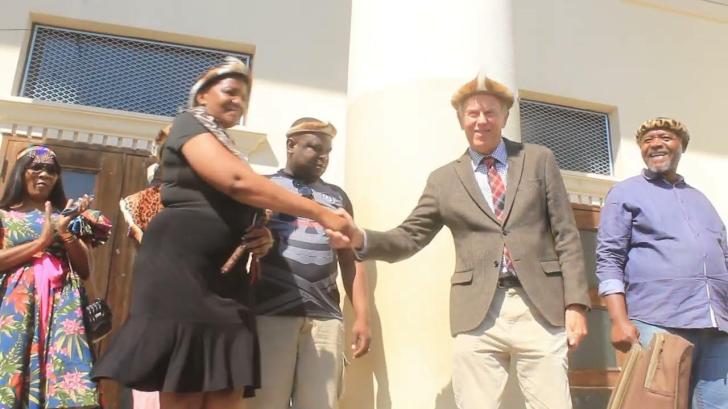News / National
Settler leads King Mzilikazi commemorations
08 Sep 2024 at 08:59hrs |
0 Views

Bulawayo Mayor David Coltart has criticized the state of the roads leading to King Mzilikazi's grave, comparing it unfavorably to the well-maintained roads to Cecil John Rhodes's grave.
During the King Mzilikazi commemorations held at Large City Hall, Coltart emphasized the significant role King Mzilikazi played in the establishment of Bulawayo, highlighting that the city's development owes much to the king's founding of his kingdom in the area.
Coltart expressed disappointment that the commemoration of King Mzilikazi's contributions does not receive the attention it deserves, given his pivotal role in the city's history. He argued that without King Mzilikazi, the city and its landmarks, including the City Hall, would not have existed. Coltart underscored the need to honor the king more appropriately, reflecting on the city's rich cultural heritage.
Mzilikazi Khumalo, the founder of the Ndebele State, established his kingdom in what is now Bulawayo after rebelling against King Shaka in 1826. His journey involved absorbing various tribes into his kingdom, which became a significant power in the region.
The mayor called for greater respect and investment in preserving historical sites related to Mzilikazi's legacy, including his final capital at Mhlahlandlela.
Coltart contrasted the current state of the roads to King Mzilikazi's grave with those leading to Cecil John Rhodes's grave, noting that the latter benefits from well-maintained infrastructure. He stressed that the council and local leaders should work towards improving the roads and facilities around Mzilikazi's grave to enhance its accessibility and promote tourism.
Rhodes, an influential figure in late 19th-century southern Africa, was known for his role in the imperial expansion and economic development of the region. His remains are interred at Matopos National Park in Matabeleland South. Coltart's comments reflect a broader call for balancing the recognition and preservation of both colonial and indigenous historical figures in Zimbabwe's heritage.
During the King Mzilikazi commemorations held at Large City Hall, Coltart emphasized the significant role King Mzilikazi played in the establishment of Bulawayo, highlighting that the city's development owes much to the king's founding of his kingdom in the area.
Coltart expressed disappointment that the commemoration of King Mzilikazi's contributions does not receive the attention it deserves, given his pivotal role in the city's history. He argued that without King Mzilikazi, the city and its landmarks, including the City Hall, would not have existed. Coltart underscored the need to honor the king more appropriately, reflecting on the city's rich cultural heritage.
Mzilikazi Khumalo, the founder of the Ndebele State, established his kingdom in what is now Bulawayo after rebelling against King Shaka in 1826. His journey involved absorbing various tribes into his kingdom, which became a significant power in the region.
The mayor called for greater respect and investment in preserving historical sites related to Mzilikazi's legacy, including his final capital at Mhlahlandlela.
Coltart contrasted the current state of the roads to King Mzilikazi's grave with those leading to Cecil John Rhodes's grave, noting that the latter benefits from well-maintained infrastructure. He stressed that the council and local leaders should work towards improving the roads and facilities around Mzilikazi's grave to enhance its accessibility and promote tourism.
Rhodes, an influential figure in late 19th-century southern Africa, was known for his role in the imperial expansion and economic development of the region. His remains are interred at Matopos National Park in Matabeleland South. Coltart's comments reflect a broader call for balancing the recognition and preservation of both colonial and indigenous historical figures in Zimbabwe's heritage.
Source - the standard
Join the discussion
Loading comments…
































